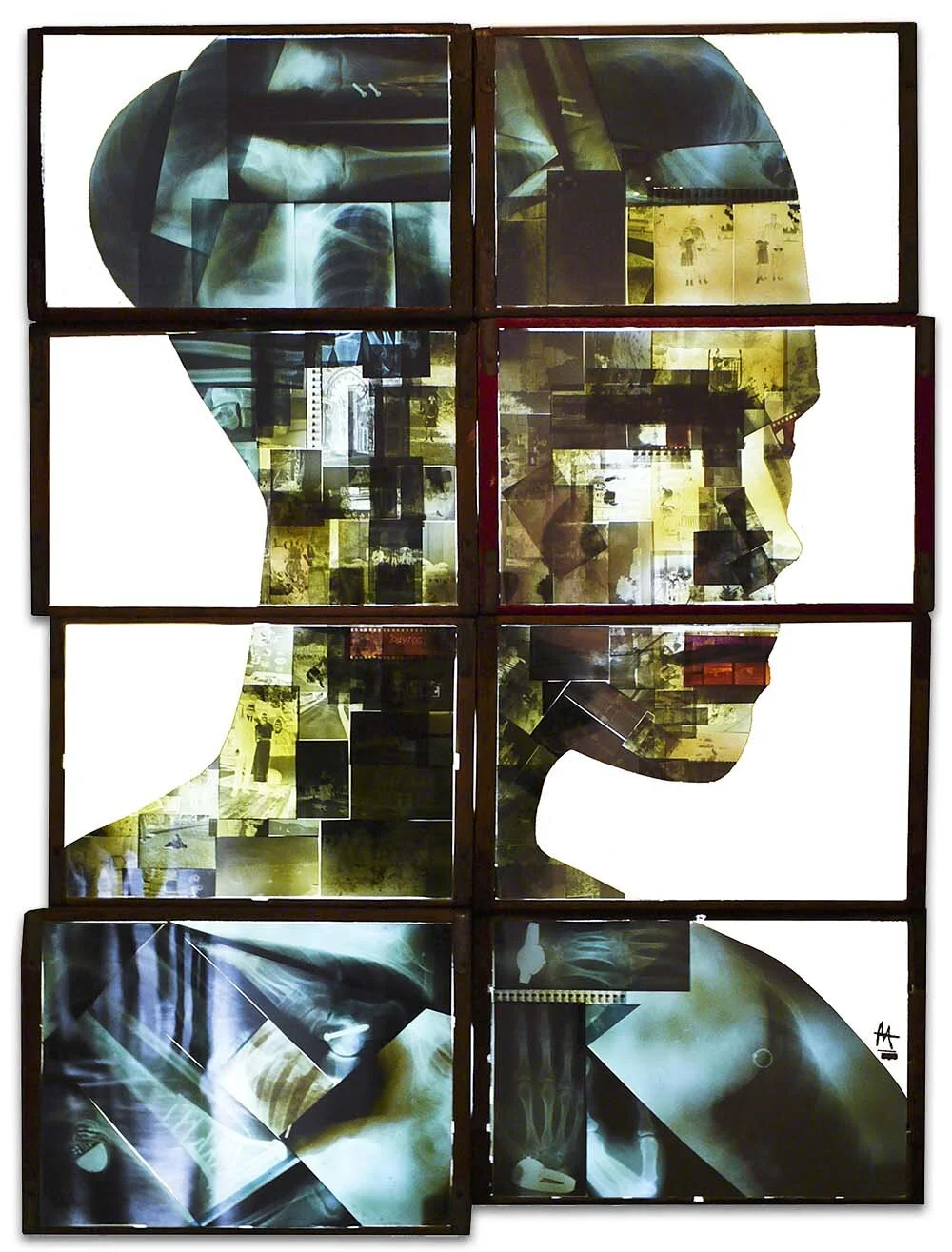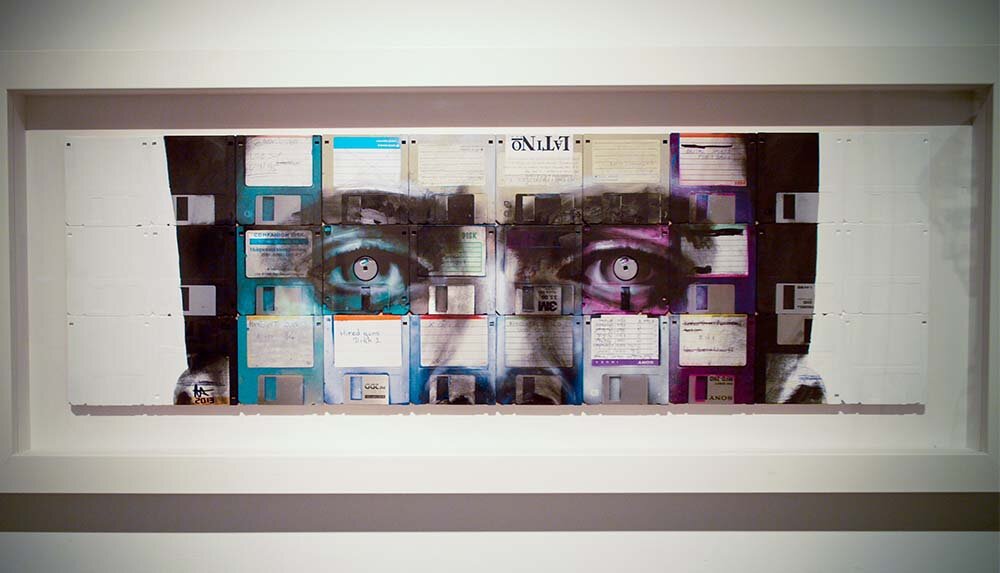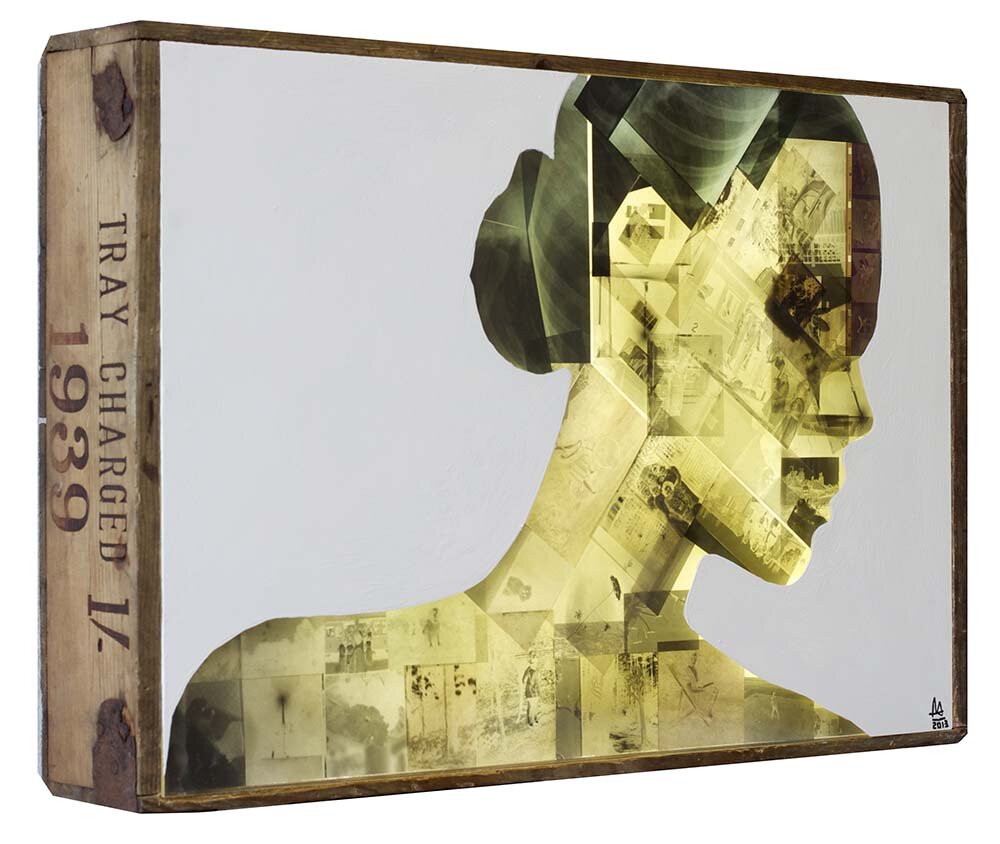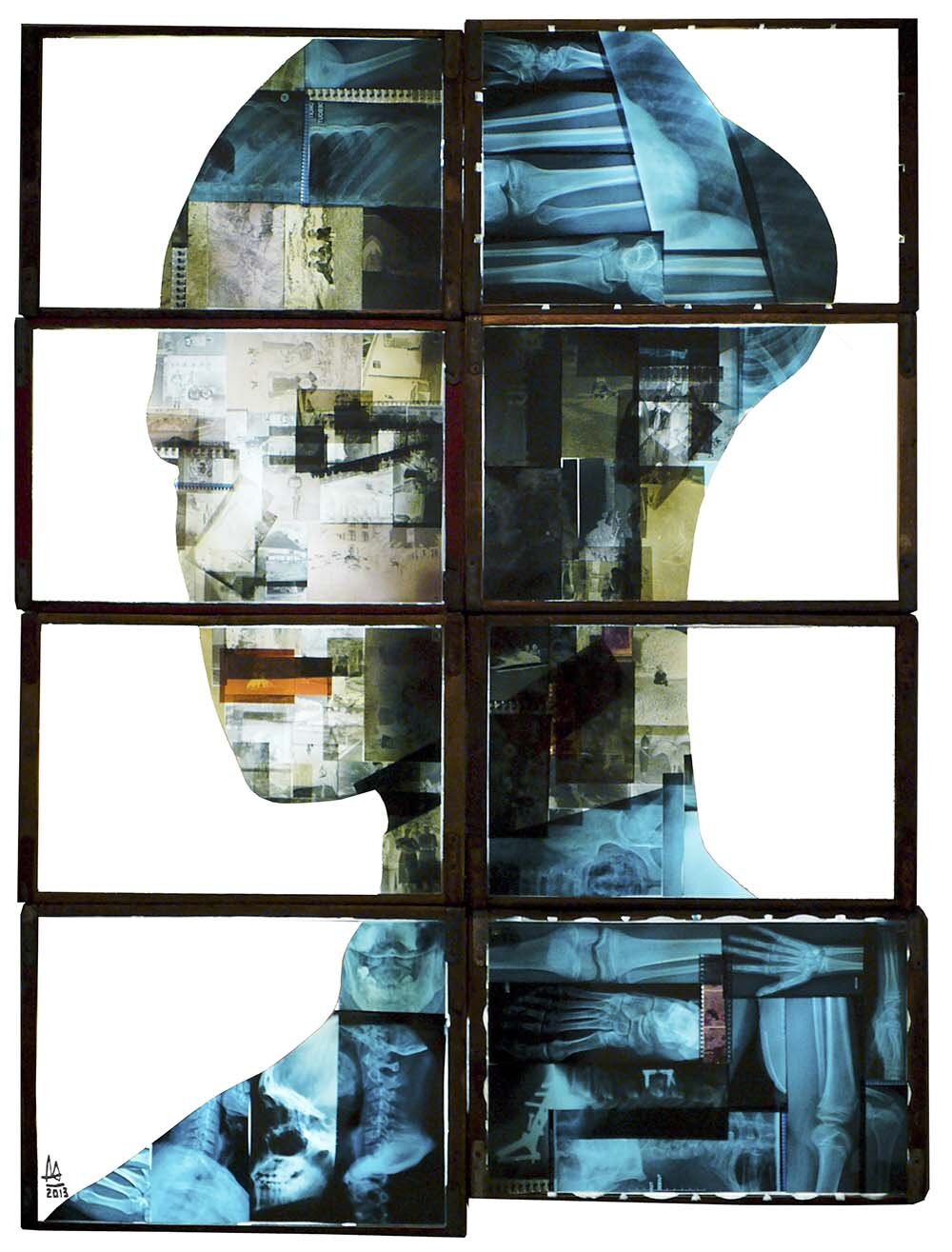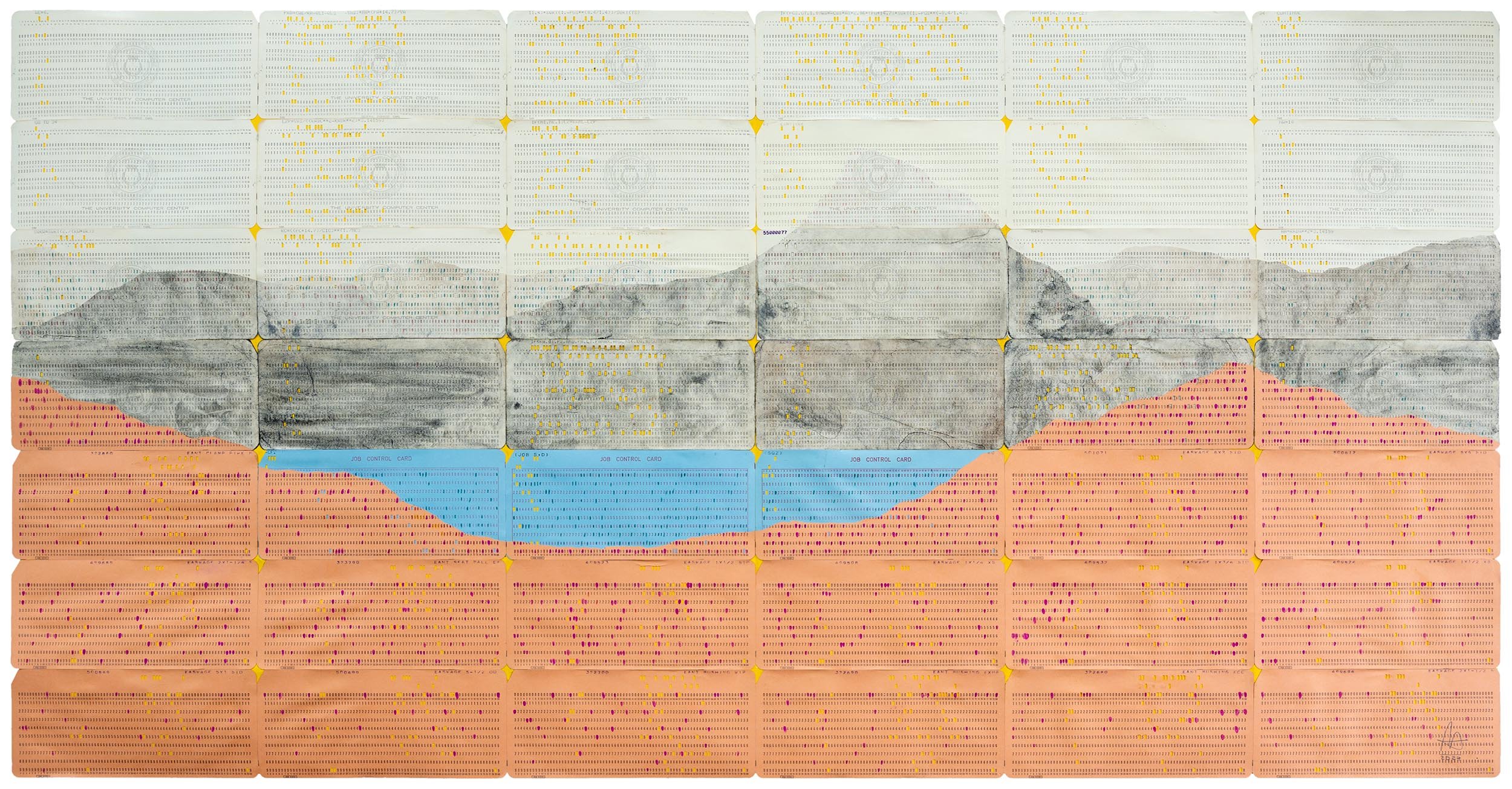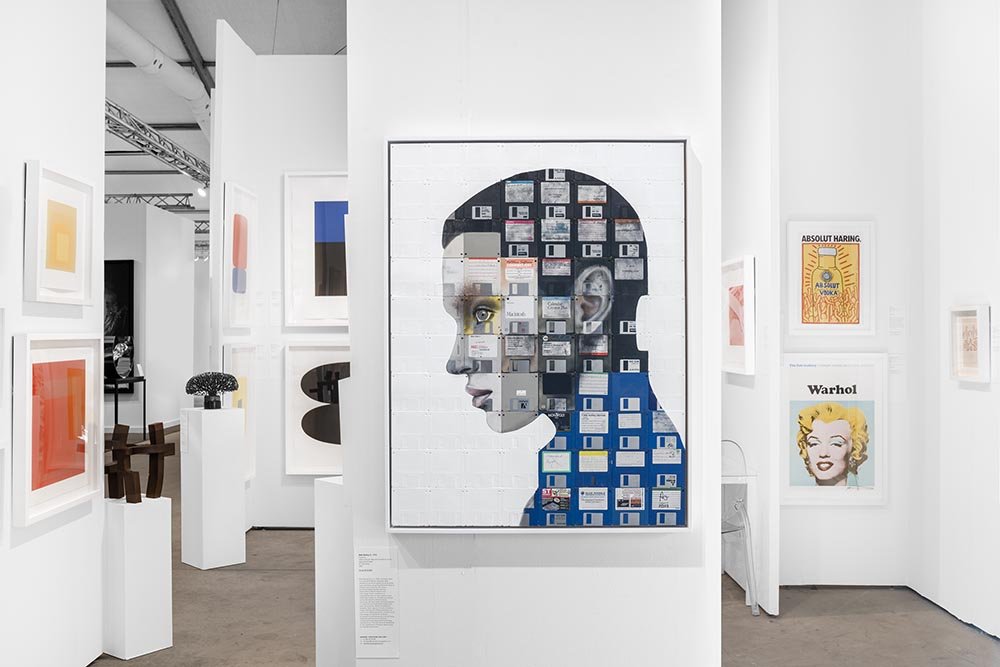X Change
Solo show
Robert Fontaine Gallery, Miami
2013
When it was introduced in the early '70s, the floppy disk changed the world of data storage forever.
No one thought it would be virtually (har har) extinct by the late 2000s. At first glance, the thin, plastic and magnetic carriers seem impersonal and downright ugly.
But Nick Gentry turns them into breathtaking creations that reveal bits and pieces of the humanity stored within the flexible square cartridges.
The London-based artist exhibited his solo exhibit, "XChange," at the Robert Fontaine Gallery during April's Second Saturday Art Walk in Wynwood. During its run, Gentry worked in Miami from a studio space.
His body of work explores identity, privacy and collective history through discarded technology and portraiture. In a rapidly expanding digital age, we have become obsessed with creating a digital personality in addition to our actual self.
"I don't really know anyone that isn't cultivating a personal digital archive in some form now, so the question of identity is bigger than ever," Gentry said.
Although conscious of the tension and disparity between our online and in person representations, he acknowledges if we choose to withdraw from social media and digital platforms, we risk becoming "invisible to the majority that are opting in. That's a massive change to the human psyche that has happened in just the last few years."
Each painting uses the outdated, technological subject matter to reveal the human condition we move further and further away from as a data spewing society.
The exhibit showcased a new series of floppy disc portraits and light box portraits, which are created by layering film negatives and x-rays backlit by LED strips, forming an emotional and biological history of its subject. In addition to this, installations with surprise elements encompassing themes of privacy and identity will also be on display.
"The whole notion of privacy has been exploded in recent times. We can't really regard it in the same terms when the world we live in now mostly prohibits it in the traditional sense. The sudden emergence of cameras on streets and in everyone's hands makes it a surveillance society now. Combine that with the fact that so many of us are willingly publishing personal moments and it only leads to more questions rather than answers," he said.
Gentry is heavily reliant on materials sent to him by people who have been moved by his work, many he has never met. They want to be involved in the creative process by submitting personal items into which he can breathe new life, often including handwritten letters wishing him well on his projects. His work continues to evolve as he focuses to express guarded emotions with subtlety. He encourages the viewer to work harder in order to see them.
"The pose and expression of the subjects is intentionally neutral now, almost like the feeling is being retained inside, and I'm looking to only reveal a slight flicker of human emotion," Gentry said.
His materials are also changing; through the use of film negatives and x-rays instead of just floppies, he is able to work with light, transparency, and tone.
"There is a heightened awareness now about how we are seen by others. So many of us are publicly visible, so it's in our consciousness. I don't think it is as important as the real person behind all that, and it's important to switch off and reconnect with who we are sometimes," he said.
Gentry aims to create innovative work that allows the viewer to see something personal within the piece, which he also means in a literal sense, as he welcomes them to bring in used film negatives and x-rays which he will incorporate into future artworks.
“Gentry finds the human remains of dead technology.”



